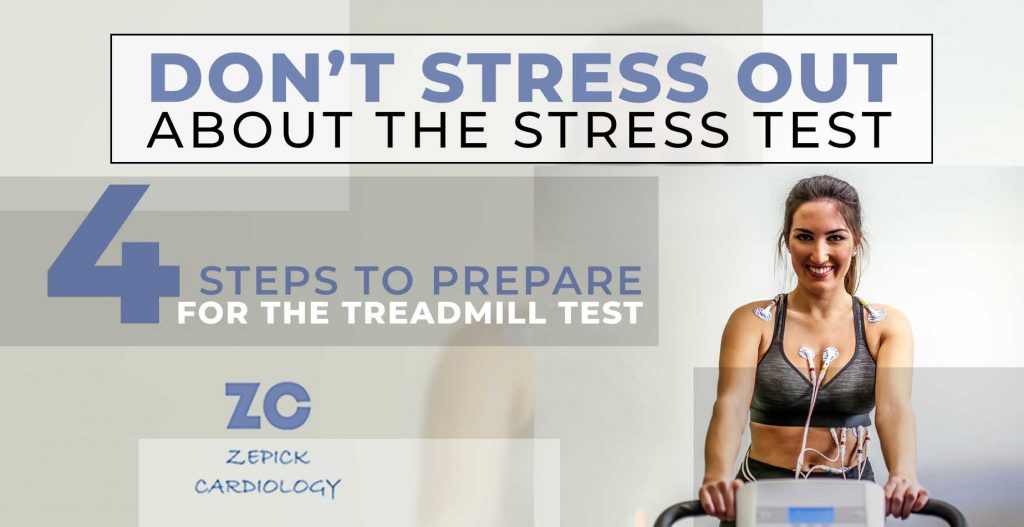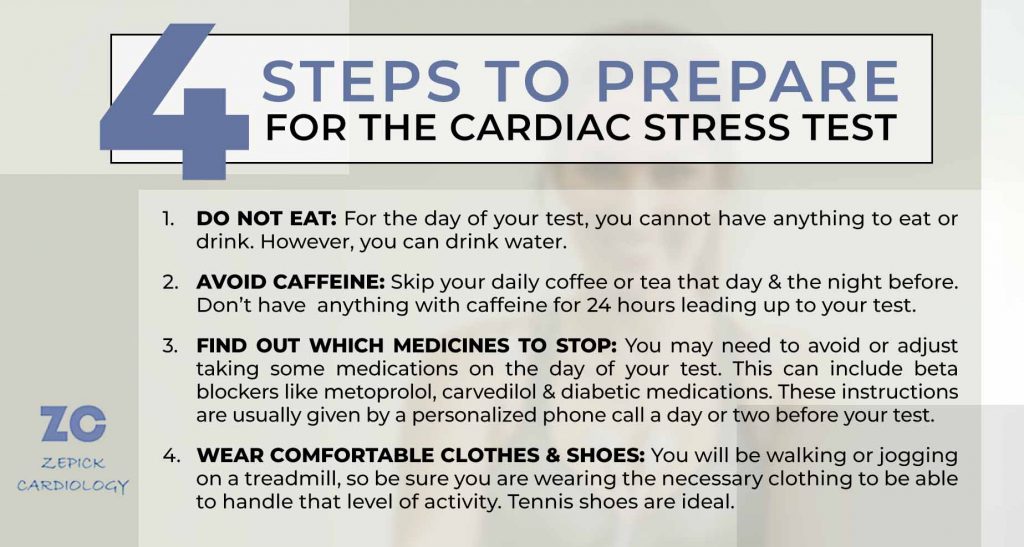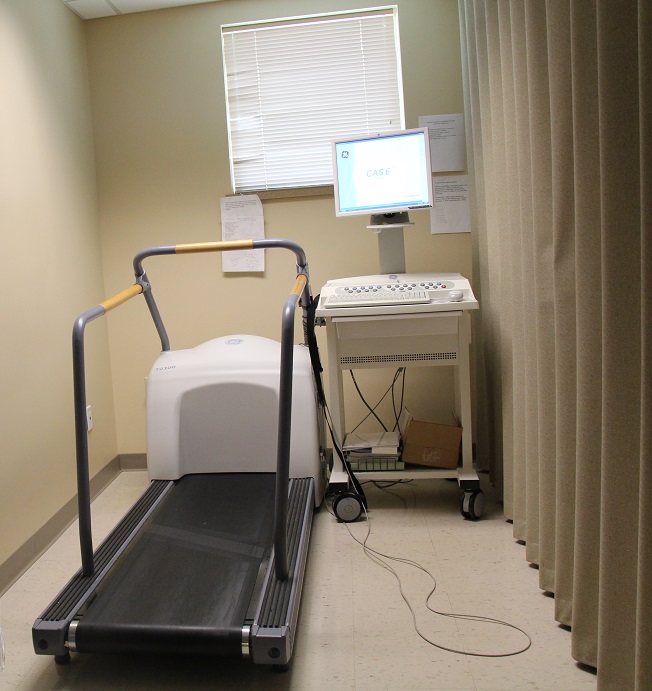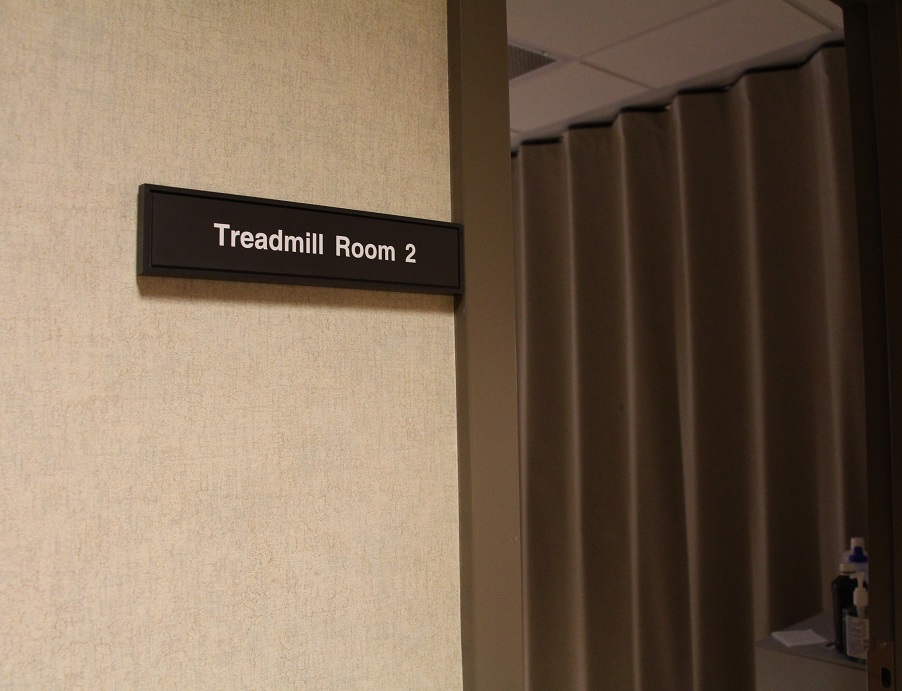What to Know Before Taking the Treadmill Test

Coronary artery disease is the number one killer of men and women. It affects more than 16 million Americans. This disease is when there is some blockage of the arteries around your heart that restricts the blood flow in your body. If left untreated, a person can suffer serious problems including a heart attack. Fortunately, there are non-invasive tests that a person can take to help diagnose if they are suffering from coronary artery disease.
The Stress Test
One of the most common medical tests you can take for determining potential heart issues like coronary artery disease is a stress test. This is the test some people may think of as the Treadmill Test or the Exercise Stress Test. While this is a standard and very safe test, some people have developed concerns and anxiety about the test.
Here at Zepick Cardiology, we perform this test all the time at our Wichita clinic. This is truly a vital test to help someone receive treatment as early as possible before serious heart issues occur. We want to provide you valuable information to help you better understand this test, help you be prepared for it, and to feel less stress about taking it.
Bottom Line: Don’t stress out about the stress test.
When is a Stress Test Needed?
Most often, if you are undergoing a stress test inside our Wichita clinic, it’s because you were referred to Zepick Cardiology by your primary care doctor. This is a very sensitive test using specific cardiac equipment that tests for blockages in the coronary arteries.
Why might you need a stress test? You may have been referred to a cardiology clinic for a stress test because you’ve exhibited some of the signs of coronary heart disease. Some symptoms of a potential heart problem include chest pain (angina), shortness of breath, irregular heartbeat, and dizziness, among others.
Discuss with your doctor any problems or pains you are feeling in your chest area. Undergoing a stress test may be what is needed to catch any developing problems before they become severe.
Preparing for your Heart Stress Test

You will be given instruction in advance to make sure you are prepared for the stress test. The first thing to know is that there is very little preparation you need to worry about. It requires a lot of the same basic steps you would undergo for a variety of different medical tests.
The 4 Prep Steps for a Stress Test
- DO NOT EAT: For the day of your test, you cannot have anything to eat or drink. However, you can drink water.
- DO NOT HAVE CAFFEINE: You will have to skip your daily coffee or tea that day and the night before. Do not ingest anything with caffeine for the 24 hours leading up to your stress test appointment.
- DO NOT TAKE BLOOD PRESSURE MEDS: On the day of your appointment, do not take any medications for blood pressure, like beta blockers, before the stress test.
- DO WEAR COMFORTABLE CLOTHES & SHOES: You will be walking or jogging on a treadmill, so be sure you are wearing the necessary clothing to be able to handle that level of activity. Be sure to wear running shoes or another footwear appropriate for a walk or jog.
What Happens During a Stress Test?
When you come to Zepick Cardiology for a cardiac stress test, you will be taken to an exam room and prepped for the test on the treadmill. This preparation includes attaching several small devices called electrodes to your chest. These are sticky patches that adhere to the skin that is connected to an electrocardiogram (EKG). There is nothing painful nor dangerous about electrodes. They simply work to provide our cardiology team images showing how well your heart and arteries are performing.

Before you even get on the treadmill, we will look at the readings we are getting from the electrodes to see the resting state of your heart and cardiac system. Then you will get on the treadmill and start walking (or jogging) for about 10 to 15 minutes. You will start out slowly and then the treadmill speed will increase gradually.
Throughout the time you are on the treadmill, one of our Zepick Cardiology’s staff will be right in the room with you. The staff will be monitoring the live EKG during the entire time you are walking.
How fast will you have to go on the treadmill?
For most patients, a brisk walk will be all that’s needed. However, if you are under 25 years old, you can expect to be jogging on the treadmill.
For the treadmill test to provide necessary results, you are going to be exerting yourself enough to reach your targeted heart rate. Your targeted heart rate is typically 50% – 85% of your safe maximum heart rate. For the stress test, you will need to reach 85%.
Each person has their own targeted heart rate. It is determined by your age, and there is a simple formula to determine it.
How to Determine your Target Heart Rate for a Stress Test
- Subtract your age from 220.
- Multiple that number by 0.85
Using this formula, you will see that a person who is 60 years old will need to reach a heart rate of 136 on the treadmill.
Pairing the stress test with advanced diagnostic imaging
To improve the accuracy of information we get from the stress test, we usually pair the resting EKG with heart muscle blood perfusion imaging or ultrasound images.
The stress test itself is no different than taking a brisk walk around your neighborhood. The only real difference is that here you are walking while surrounded by heart experts inside a cardiology clinic. If your heart is in fact at such a great risk for cardiac problems, there is no better place to uncover it than right inside a cardiology clinic surrounded by our team. Your safety and health are our highest priorities.
What Happens After the Treadmill?
After the walking or jogging is done and we have gotten all the necessary images of your cardiac system, you will be unhooked. The test is over. Our cardiologists will go over the various images we took during your appointment.

Urgent and extremely abnormal results are available to be interpreted by the doctor immediately following the stress test. But in most cases, the patient will schedule
a routine follow up appointment to go over the results with the doctor and come up with a plan of treatment going forward. It will only take a few days for you to get your results. These appointments are usually scheduled a week or two after the stress test.
Of course, one reasonable stressor about a stress test is dreading the results. Yes, it’s true that the test may uncover you have serious heart issues. But if left ignored, you could be facing serious illness or death.
Getting a cardiac stress test and finding out you have an issue like coronary artery disease means you now have hope and a path towards a healthier life. You will be given the medical care and information you need to get healthier and to live a longer life. This knowledge, while scary, may save your life.
What if I’m Unable to do the Treadmill Test?
Some people are in a condition that will not allow them to walk on the treadmill. Whether they are not able to do this exercise, or it would be unsafe for them to do so, there is an alternative option. We have a medicine for those people to take to provide us with necessary results without use of a treadmill.
Questions About Your Heart Treatment?
If you have any questions or concerns regarding procedures or preparations for heart stress tests, feel free to call us at Zepick Cardiology at (316) 616-2020.
Tags: cardiac test, exercise test, how to prepare for the treadmill test, is the stress test dangerous, stress test, treadmill test




